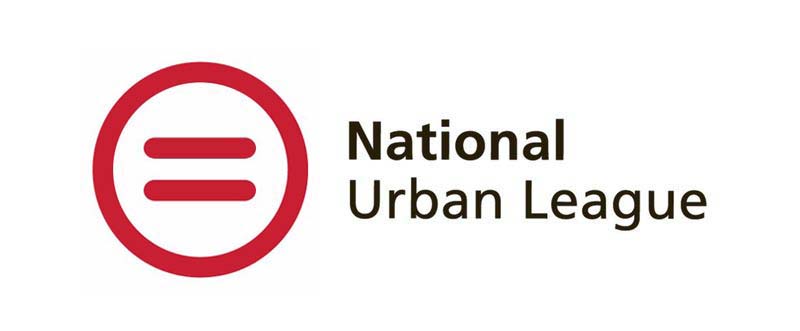The “What motivates you?” interview question has a lot of potential answers. What motivates you to do a good job could be the thought of pleasing clients or working with your team to overcome an obstacle. It could even be a hot bath or chocolate bar!
While there’s nothing wrong with any of these answers, when it comes to explaining what motivates you in a job interview, it’s best to stick with your professional motivations. But “professional motivations” can mean a lot of things, too. Are you motivated by the job title, what you might learn, or the office ping-pong table?
It’s a lot to consider, but we’ve got you covered with everything you need to know about answering “What motivates you?” in a job interview.
Why Employers Ask ‘What Motivates You?’ in a Job Interview
When a hiring manager asks, “What motivates you?” in a job interview, what they’re really asking is, “What motivates you to do a good job at work?” In other words, what excites you about your job, and why do you do it every day?
As Jamie Guilford, associate director of employer relations at York College of Pennsylvania, notes, explaining what motivates you to do a good job at work helps the hiring manager understand why they should hire you. “When a candidate can effectively ‘tell their story’ about the strengths, skills, and motivation they can bring to a position, the employer — with their understanding of what the job will entail — can better understand what the candidate will likely contribute if hired.”

Interview Success
Uncover the tips and tricks for interview success in this free course from BCLP. You'll learn how to ace a video interview, the online skills assessment, and more.
Avg. Time: 4-5 hours
Skills you’ll build: Video interviewing, public speaking, organization, time management
Explaining what motivates you also helps the hiring manager assess if your motivations line up with the job duties and the company’s mission. For example, if you say you’re motivated by helping your company find and attract new business but the role doesn’t have anything to do with lead generation, you probably won’t be happy in the role.
And if you’re a good fit for the role, describing what motivates you also helps the hiring manager understand what your career goals are and whether or not the company can help you accomplish them.
The employer is also assessing how well you handle professional obstacles. While you’ll encounter specific challenges on the job, the ability to express what motivates you in general helps the employer get a sense of how you might handle all kinds of obstacles.
And finally, the hiring manager is trying to see how well you understand yourself. Being able to describe what motivates you demonstrates you know what keeps you focused and on task (qualities employers want from their staff). What’s more, it helps them understand how you measure success on the job.
Other Ways Employers Ask the What Motivates You?’ Interview Question
While some employers will directly ask what motivates you, others may be more indirect. They may ask:
- Are you self-motivated?
- How do you stay on task?
- What are you passionate about?
- What drives you to do your best/succeed?
- What inspires you?
- What makes you excited about coming to work?
Basically, anytime the interviewer is asking why you do your job and what keeps you interested in work, they’re asking, “What motivates you?”

Professional Skills
Discover your professional values in this free course from Discover Financial Services. You'll learn how to identify what matters to you in a career in how to connect with companies that support them.
Avg. Time: 2-3 hours
Skills you’ll build: Self-reflection, organization, planning, discovery
How to Answer ‘What Motivates You?’ in a Job Interview
When framing your answer to the “What motivates you?” interview question, pick something that truly motivates you but also relates to the job. Here are some tips to help you get started.
Think About Why You Do What You Do
Start by thinking about why you do your job or why you selected your major. What is it about the industry or job that excites you? For example, if you’re in accounting, do you enjoy picking apart the intricacies of tax law? If you’re in social services, are you there because you enjoy contributing to the greater good?
Explaining why you’re pursuing not just the job but also that specific career path or industry can help you illustrate what motivates you at work.
Focus on Specifics
Employers want to know what will motivate you to do a good job at their company, so tailor your answer to the specifics of the role. Why did you apply for it? Which parts of the job description jumped out at you and grabbed your attention? How does the role fit into your career plans or how do you want to contribute to the company’s goals?
Stay Positive
Focus on the positive elements of what motivates you. For example, if you’re motivated by looming deadlines, you may not want to say, “Upcoming deadlines motivate me because the stress and pressure force me to act.” While some people are motivated by stress, this answer could imply that you tend to wait until the last minute to get things done.

Career Readiness
Enhance your professional skillset in this free course from Cisco. You'll learn how companies use data to make decisions, create a project plan, and more.
Avg. Time: 2-3 hours
Skills you’ll build: Project management, project planning, data analysis, data presentation
So, reframe your answer to focus on the positive aspects of a looming deadline. “I’m motivated by deadlines. I love looking ahead and planning out what I’m going to do and when. This helps me stay on task and ensure I complete things by the due date.”
Give an Impactful Example
In some respects, “What motivates you?” is a behavioral interview question, so you can use the STAR method to help you answer the question.
STAR stands for situation, task, action, result. You talk about a situation you faced, the task you had to complete, the action you took, and what the result was. This helps demonstrate your impact and quantify what that impact was.
For example, if working collaboratively is what motivates you, your answer should include a time you collaborated and what the impact of that collaboration was. You could say something like:
What motivates me is teamwork. I really enjoy working collaboratively with other departments to solve a problem. For example, in my internship, I got to help the engineering and design teams figure out why the menu wasn’t rendering properly on mobile. It turns out someone had forgotten to close a tag, and once we discovered it, we fixed the menu, and noticed that click through rates to the product page increased.
Be True to You
Because “What motivates you?” is an open-ended question, you may worry about giving the “right” answer.
While your answer should relate to the role, when it comes to answering a “What motivates you?” interview question, there is no right or wrong answer. After all, motivation is a very personal thing and what motivates you may not be what you think the hiring manager wants to hear. But saying what you think the interviewer wants to hear may not work out the way you want.
First, your answer could come across as rehearsed or inauthentic. You may not give as detailed of an answer and that could lead the interviewer to think you’re phoning it in. Or the interviewer may follow up and ask for more details you may not have.
Second, if you do get the job, you might find yourself completely unmotivated because you’re not a good match for the role or the company.

Building Your Personal Brand
Get the inside scoop on personal branding in this free course from Ashurst. Learn how to build your professional brand, why it matters in your job search, and how to manage it.
Avg. Time: 2-3 hours
Skills you’ll build: Branding, reputation management, LinkedIn profile, self-assessment
Consider Your Audience
That said, you do need to remember who you’re talking to.
Your truth may be that you’re motivated by money, status (like the company name or the job title), or fringe benefits and perks (like awesome swag). However, saying that a paycheck or good health insurance is your sole motivation for coming to work is likely to fall flat.
Employers know that nearly everyone works because they want and need money or health insurance (or both!), and that it’s a significant motivator for most job seekers and employees.
But employers want to know what motivates you to do a good job beyond payday. How do you stay engaged with the job? What drives you to do your best and succeed? While money does matter, what are the other factors that motivate you just as much?
Example Answers for ‘What Motivates You?’
So, what does it look like when you put all the pieces together? Here are a few example answers to help you explain what motivates you at work.
Example 1
What motivates me is solving problems that help my team accomplish its goals. For example, we couldn’t figure out why revenue dropped on X product. It took some digging on my part, but it turns out that after the last website refresh, some of the pages were changed, and the buy buttons were moved somewhere else. Unfortunately, we didn’t realize this and were using the wrong links on our CTAs. Once we adjusted the links, revenue on the product went up by 30% in one week.
Example 2
I’ve always enjoyed “being the change I want to see in the world.” It’s why I majored in social work and volunteer as often as I can at causes that are important to me. And when I found this job opening, I realized that I could work somewhere that shares the same values I do, and I could make a major difference in a lot of lives.
Example 3
I’m motivated by helping clients achieve their marketing goals. I enjoy digging into the data around what is and is not working with their campaigns and helping them adjust whenever necessary.
What Motivates You?
Ultimately, the best answer for “What motivates you?” in an interview is the honest one. Talk about what excites you, what drives you, and what gets you out of bed in the morning while relating it back to the job you’re interviewing for.
Looking for tips on how to answer other common interview questions? Check these out!
- How to Answer ‘What Are Your Reasons for Leaving a Job?’
- How to Answer, ‘Tell Me About Yourself’
- What Is a ‘Good’ Weakness for a Job Interview?
- Interview Questions, Answered: ‘What Is Your Greatest Strength?’
- How to Answer: ‘Why Are You Applying for This Position?’
- 25 Common Internship Interview Questions
- 15 Entry-Level Interview Questions
- Common Job Interview Questions and Answers (Sample PDF)
- How to Answer: ‘Where Do You See Yourself in 5 Years?’
- Interview Questions, Answered: ‘What Are Your Salary Expectations?’
- How to Answer: ‘Why Do You Think You Are Qualified for This Position?’
Image credit: Canva


